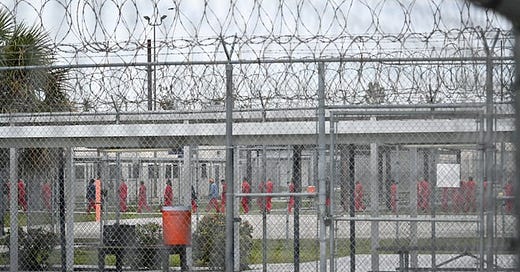‘Not Even Toilet Paper’: Congressman Reports Conditions of ICE Facility in His State
Migrants held with limited access to lawyers and in poor conditions, Carter says
A Democratic congressman from Louisiana is exposing the conditions migrants are facing while held at a remote detention facility in his home state.
Rep Troy Carter outlined the living conditions migrants must endure during an interview on MSNBC host Rachel Maddow’s Tuesday program.
The Trump administration is housing migrants at detention centers in Louisiana as part of its program of mass deportations, which has set the administration in a showdown with the Supreme Court.
The administration is detaining migrants specifically in Louisiana by design, according to Carter, Louisiana's 2nd congressional district, which is based in New Orleans.
The state’s under the jurisdiction of the the Fifth Circuit Court, which is “one of the most conservative benches in our country,” he said.
And while most detention facilities elsewhere are subject to a maximum 72-hour hold period, that’s not true in Louisiana, Carter said.
“In Louisiana, the stay can go up to a week, a month, multiple months,” he said.
Further, the facility in question is quite remote, Carter said.
“And so they are sent here in a facility that’s very difficult to get to, very challenging for any lawyers or advocates to be able to access our family members,” he said. “The facility itself appeared to be clean in fact, suspiciously clean, like perhaps there was some sprucing up before we got there.
“The other thing that was noted is that all of the detainees we spoke to indicated that it is very cold, that they aren’t allowed to have blankets, the temperature is very uncomfortable for them,” Carter said. “Many of the women in the facility indicated that they were not given proper feminine products as regularly as needed, in some cases not even given toilet paper. That is absolutely unacceptable.”
And these migrants are being held in legal limbo, the congressman said.
“They shared with us that they are frightened, many of which have not been given dates of when their court hearing will be,” he said. “They’re there, many said they don’t know why they’re there and were not able to share with us what the next steps are.
“Some now have lawyers, although many of them said that they asked for lawyers for days before finally being granted an opportunity to speak to counsel.”
Please support our work…
Please subscribe…




